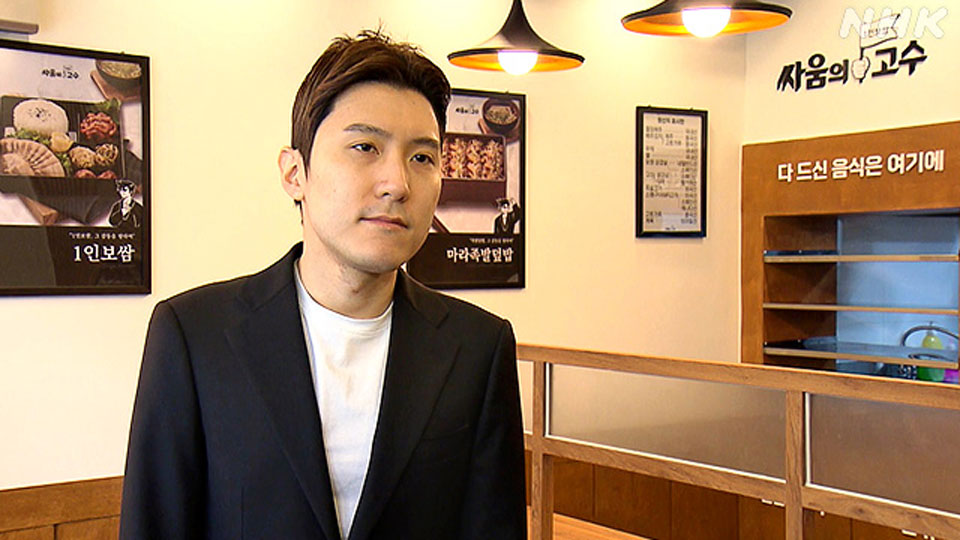'Non-marriage' allowance
When an employee of cosmetics chain Lush Korea gets married in South Korea, the company congratulates them with a gift worth around 500,000 won (around 50,000 yen) and paid leave for a honeymoon. But for those like Kim Seul-ki, it's a perk they're never likely to receive.
"I'm a sexual minority. In South Korea, I have no connection to legal marriage," he says.
To address the sense of unfairness, Lush Korea introduced a "non-marriage allowance." In a nutshell: declare you intend to never get married and the company will hand you 500,000 won and 10 vacation days. So far, more than 20 people have taken up the offer.

"I applied for this program and was happy I could get the same benefits as married people," says Kim. "It motivates me to work because I feel that everyone is treated in the same way."

If one of the applicants has a change of heart and ties the knot, they can keep the money. They just won't get a congratulatory gift.
Kim Min-sun runs the benefits program at Lush Korea and says the non-marriage allowance isn't designed to promote the single life, but to foster respect for diverse lifestyles and values. And she says it helps with hiring, too.
"When we interview, we often hear that applicants want to work for us because the company fits their values," she says. "And the number of long-term employees we have is increasing, too."

Lush Korea is one of a few companies with such a program. Non-marriage benefits are being offered at investment firms, department stores and telecommunication giants among others. Some give a month's salary to resolute singles, while others give houseplants in place of the wreaths given at weddings.
Shunning matrimony
The slumping marriage rate in South Korea has even spawned the term "nonmaritalism." Unlike being simply unmarried, which implies marriage could be ahead, nonmaritalism refers to people who have chosen against it.
South Korea's National Statistics Office says the percentage of unmarried men in their 30s is more than five times what it was 30 years ago. The rate for women is eight times higher.
"The main reasons the younger generation is not getting married are mainly economic, including skyrocketing real estate prices and high education costs," said Kim Young-ran, a research fellow at the Korean Women's Development Institute.
"So support for single-person households does not provide an incentive for people to decide whether or not to get married, nor does it contribute to the declining birthrate. I believe that more active support for younger single-person households would lead to economic stability. And perhaps this could even lead to marriage."

Table for one
The rise in single-person households also means an increase in solitary dining, and the stigma around solo restaurant trips is fading in South Korea.
One restaurant chain in Seoul has adapted a classic Korean dish to cater to this trend.
Possum — steamed pork served with kimchi and vegetables — is traditionally served in large portions for groups to share. But the chain now offers single portions.

One diner in his 30s says, "I come here because I can eat alone, whereas before I had to order for two or more people. It's nice because I can eat without worrying about anyone else."

The chain's founder says he spotted the trend emerging a decade ago and jumped on it.
"I thought that if I offered one-person portions of dishes that until then were not ordered in single servings, demand would explode," says CEO Park Yo-ha. "We started with possum but have added new dishes to our menu, like chokbal (braised pig trotters) and samgyeopsal (grilled pork belly)."
And he has his sights on the drinking culture next: "In Japan, there is a culture of drinking alone, but in South Korea, this style of drinking has not yet spread, so we are thinking about creating a place where people can easily drink alone without feeling embarrassed."


